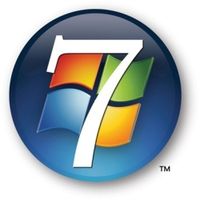
Some of the dumbest advice comes from ReadWriteWeb, which thinks Microsoft Needs to Open Source Something Big But What?
Wrong question. Open source is not some magic elixir. It's a specific tool with a specific purpose. When you want collaboration you offer up the code. In the mid-2000s, this meant code you just wanted to shove over the side. More recently it's been important projects you needed others to commit to in order for them to succeed.
Microsoft is one of three companies (Oracle and Apple are the others) that has built a complete software ecosystem that can stand alone. It has armies of programmers who really believe they're working on great stuff. (Google is a Software as a Service company – it doesn't count.)
The problem is they're working in isolation. Usually it's the physical isolation of Redmond, Washington. But even for a Microsoftie in Silicon Valley, you're isolated by your corporate culture, which sees software – not what software does but software itself – as the heart of the business model.
Even in 2010 Microsoft is a one-trick pony, and that pony is called Windows. The Windows monopoly was embraced-and-extended into Microsoft Office through bundling. Steve Ballmer's great success has been to extend its reach into what used to be called the mainframe space but is now called the server room.

Microsoft was reduced to eating its young. In contrast to the “Developers Developers Developers” mantra Ballmer preached at the start of the decade, Microsoft has spent years creating its own alternatives to its developers' products, most notably in health care, another notable failure.
Back in the 1990s, when the antitrust storm was at its peak, I remember suggesting that Microsoft do what AT&T and Standard Oil once did, and accept a break-up. A utility company built on Windows and an application company built on Office could have been worth more than the whole firm was, and without the hassle of lawyers, PR men and other spinners questioning every idea.
Water under the bridge. Open source has done what the government couldn't. Don't like Windows? You have Linux. Don't like Office? You have OpenOffice.org. There is no longer any Microsoft monopoly to attack.
What hacks me about the ReadWriteWeb column is it presumes Microsoft hasn't tried open source. It has. Codexplex.com is one of the largest open source repositories out there. Microsoft essentially made drivers for its Kinect open source. They get it.
Microsoft could gain further traction with its main audience by “semi-sourcing” Azure drivers. I say “semi-sourcing” because the policy could be sold as equivalent to what Google is now doing with Android. Strict control of the ecosystem. But the aim would be, as with Codeplex, to tease code out of corporate vaults, to make it more generally useful, but in a controlled environment that big companies would be comfortable with.
Or there's my own cunning plan.

You buy Verizon, you sell Verizon Wireless to Vodafone for most of the cost of the deal, and you build in some guarantees regarding Windows Phone, not just through Verizon but through Vodafone. Now you've got a last-mile network extending into tens of millions of homes, plus the old MCI, which just happens to be (still) one of the key pieces of the Internet core.
Now you hire some guys from Google and focus on the same kind of cost-cutting. You'll own fiber. You can cut energy costs. You can improve server performance. You cut out the voice, and leave voice regulation behind, running everything as VOIP, and now you can sell broadband at speeds and prices comparable to cable.
Plus you have the infrastructure needed to build a corporate cloud that will put those of Google and Amazon in the shade.
In doing all this you become a magnet for hot young engineering talent. Your software has the stroke with big corporations needed to get them into the cloud with security. It makes all your other strategies more powerful. By owning the rights-of-way you can dramatically expand the footprint of your own WiFi network, creating a defacto competitor in that space.
Or you can keep running your bank and slowly become a cigarette company.










